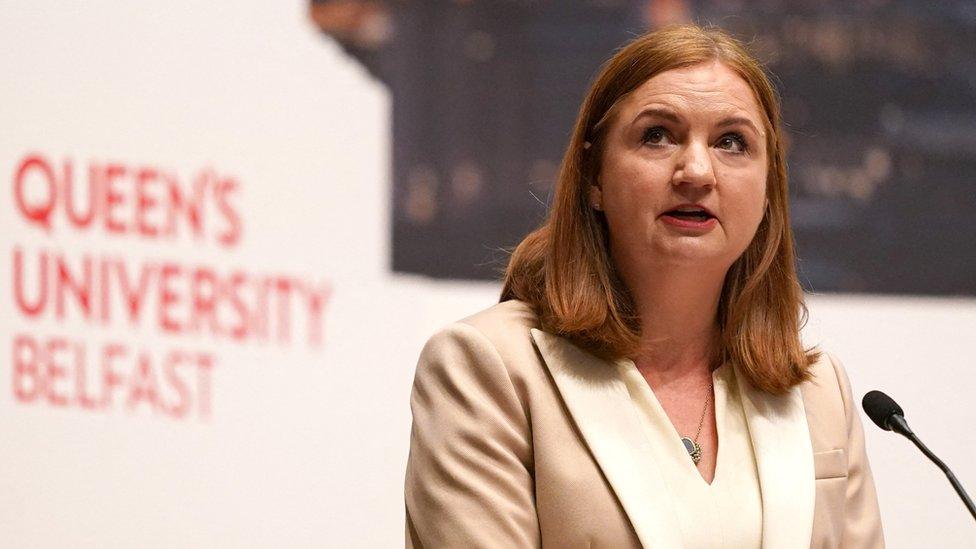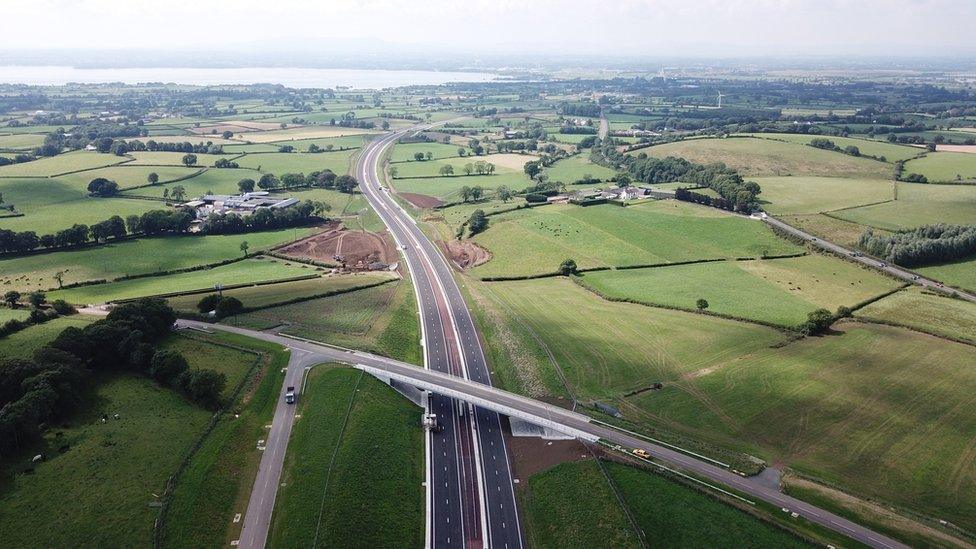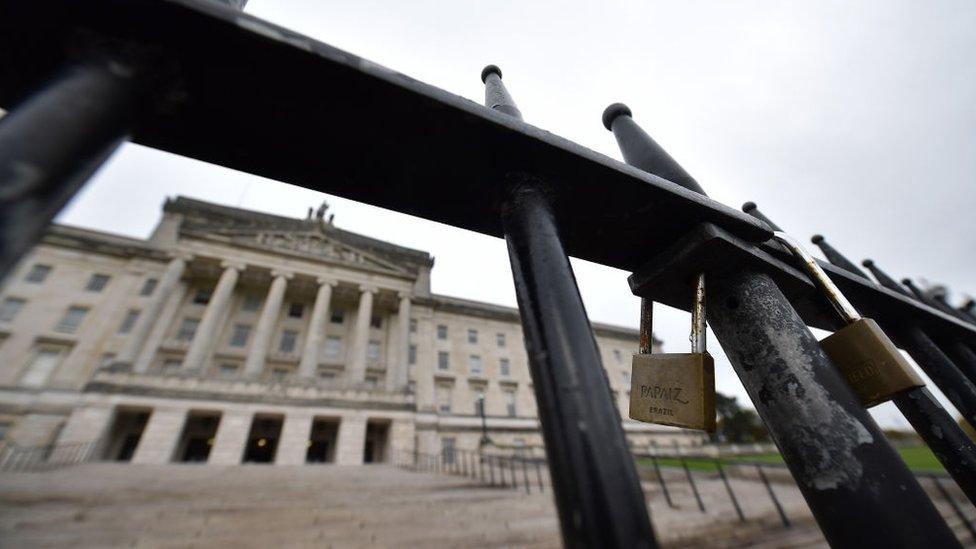Stormont budget due to be published on Thursday
- Published

Stormont parties have been invited to a meeting with the Northern Ireland secretary on Thursday
BBC News NI understands the Northern Ireland secretary will publish a budget for Stormont departments on Thursday.
Chris Heaton-Harris had said on Tuesday that he would deliver a budget in "short order" but would not name a date.
It is understood he is likely to spell out 2023-24 overall allocations to departments by way of a written ministerial statement.
Some departments have been told they could face cuts of 10%.
It is understood that Stormont party leaders have been advised that the budget will be delivered on Thursday.
It comes ahead of a meeting they are due to hold with Mr Heaton-Harris about the financial picture.
'Unprecedented damage'
Previously unthinkable decisions like turning off Northern Ireland's street lights are potentially on the table as a result of budgetary pressures.
The Department for Infrastructure is facing a significant funding shortfall of over £100m, BBC News NI understands.
It is responsible for water, transport, planning and management of the road network, which is worth £32bn.
Departments are facing cuts when Northern Ireland Secretary Chris Heaton-Harris sets a Stormont budget.
BBC News NI has seen a letter in which Jayne Brady, the head of the Northern Ireland Civil Service, has warned that the "damage" caused by the proposed budget reductions will be unprecedented.
Writing to Mr Heaton-Harris's office, she outlined her "profound concern" about senior civil servants being placed in "harmful decision-making positions" about which services should be cut.

Civil service boss Jayne Brady says it will not be possible for some departments to make the level of cuts that have been suggested
Decisions have already been taken by the Department for Infrastructure to try to save money.
They include limiting road maintenance, flood management and staff recruitment.
In addition, funding for some schemes such as community transport are only in place until June.
The bulk of the department's spending - 95% - is required by law. Therefore, only a limited number of discretionary areas can face cuts.
Schemes facing cuts
Discretionary areas include street lighting, the cost of which has more than quadrupled due to rising energy costs.
It is understood the department's budget allocation could mean funding for gritting and community transport is stopped.
There are concerns about the effect such decisions would have on things like road safety.

Road maintenance could be limited as department faces brutal budget cuts
It could also mean having to consider which bus and rail routes run by public transport operator Translink continue to be funded.
Decisions such as those would normally fall under the responsibility of a Stormont minister, as civil servants who are currently running Northern Ireland do not have the legal power to do so.
Unlike some other government departments, such as health and education, which have been more protected in recent years, many of the problems are a result of underinvestment since 2014.
In her letter to the Northern Ireland Office, Ms Brady called for clarification from Mr Heaton-Harris about remarks he made on Tuesday.
He had told Westminster's Northern Ireland Affairs Committee that he would not provide a ministerial direction for civil servants in relation to spending as he did not think "it was the right thing to do".
A ministerial direction is issued when senior civil servants raise questions or concerns about departmental decisions.
Ms Brady wrote: "Without arrangements for ministerial decision-making it will simply not be possible for some colleagues to bring spending in line with departmental budgets likely to be set."
She said it was estimated that at least £100m of monthly spending was linked to decisions that could only be taken by ministers.
- Published25 April 2023

- Published28 March 2023
